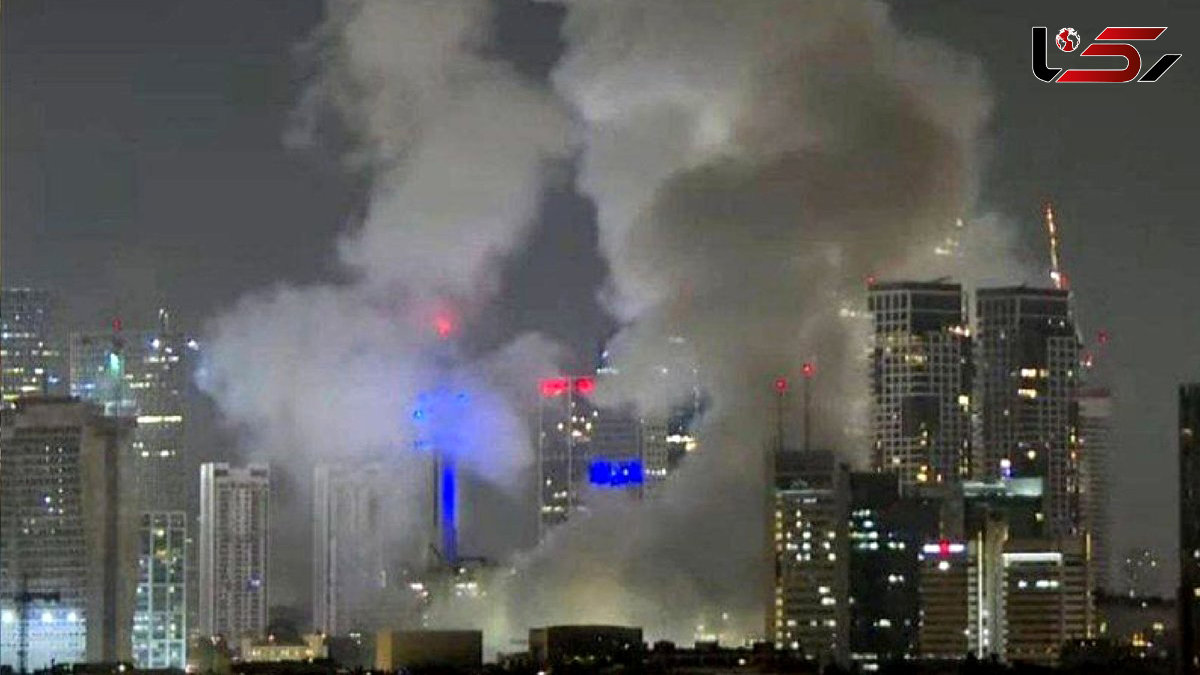Investors Flee Israeli Commercial Hubs as Drone Strikes Paralyze Tourist Heart of Eilat
Rokna Political Desk: The Israeli coastal and tourist city of Eilat has been forced into a semi-shutdown following a surge of drone attacks originating from Yemen, prompting investors to flee commercial centers across Israel.

According to Rokna, Israeli media sources reported on Sunday evening that Eilat—located at the southernmost tip of occupied Palestine and a key economic and tourist hub—was placed on high alert after a drone entered the city’s airspace.
Drone Breaches and Defense Failures
Hebrew-language reports indicate that warning sirens were triggered across Eilat, and defensive missiles were fired to intercept the drone. However, the UAV reportedly penetrated Israeli defense systems and evaded surveillance, as alerts were only activated after the drone’s entry into the city’s airspace.
Investor Exodus from Israeli Commercial Centers
The repeated drone incursions have caused significant disruption in Eilat, leading to a semi-shutdown and a noticeable flight of investors from Israel’s commercial hubs.
Ramona Airport Temporarily Closed
In response, Israeli authorities temporarily shut down Ramon Airport. A plane on approach to the airport was forced to divert due to concerns over potential collisions or attacks. Hebrew media also reported several explosions in and around the city. Police stated that bomb disposal units encountered shrapnel from defensive missile intercepts in multiple locations, indicating that several interceptors had been launched to neutralize the drone.
Rising Threats Amid Increased Military Activity
This escalation comes amid a heightened state of alert in Israel following a prior attack by Yemeni armed forces targeting strategic sites in occupied Jerusalem using hypersonic ballistic missiles. Analysts suggest these strikes are part of Yemen’s continued support for the people of Gaza and represent a growing scale and intensity of operations directly challenging Israeli security systems.
Repeated attacks and expanding geographical reach suggest that Israel has entered a new phase of aerial threats, with key airports and economic cities at risk, significantly increasing security and military pressure.
Economic and Social Impact
According to Maariv, if the current situation persists, unemployment rates may rise, prompting residents to migrate toward central regions in search of work, potentially turning Eilat into an economically dormant or even “ghost city.”
Hebrew-language media have also highlighted glaring weaknesses in Israel’s air defense against these drone strikes. The Jerusalem Post reported that Yemeni drones, despite being less sophisticated and costly than advanced missiles, have inflicted substantial damage on Israel. Threats from Yemen are described as persistent, destructive, and potentially deadly in the long term.
Maariv noted that the Israeli Air Force failed for the fourth consecutive time in recent days to protect Eilat’s airspace. The report called for immediate investigations into the shortcomings of the defense systems, particularly regarding whether Israel has adequately deployed radar-equipped vessels and tracking systems in the Gulf of Aqaba and Eilat. Analysts stressed Yemen’s significant progress in domestic drone and long-range missile production and warned that underestimating Yemen’s capabilities would be a strategic error.
Yedioth Ahronoth reported that the latest drone strike near a hotel in Eilat exposed “terrifying deficiencies” in Israel’s defense network. A week after an attack targeting the entrance of the Jacob Hotel, another explosion occurred near the Mall HaYam shopping center, injuring 50 people, many from broken glass and shrapnel.
Send Comments